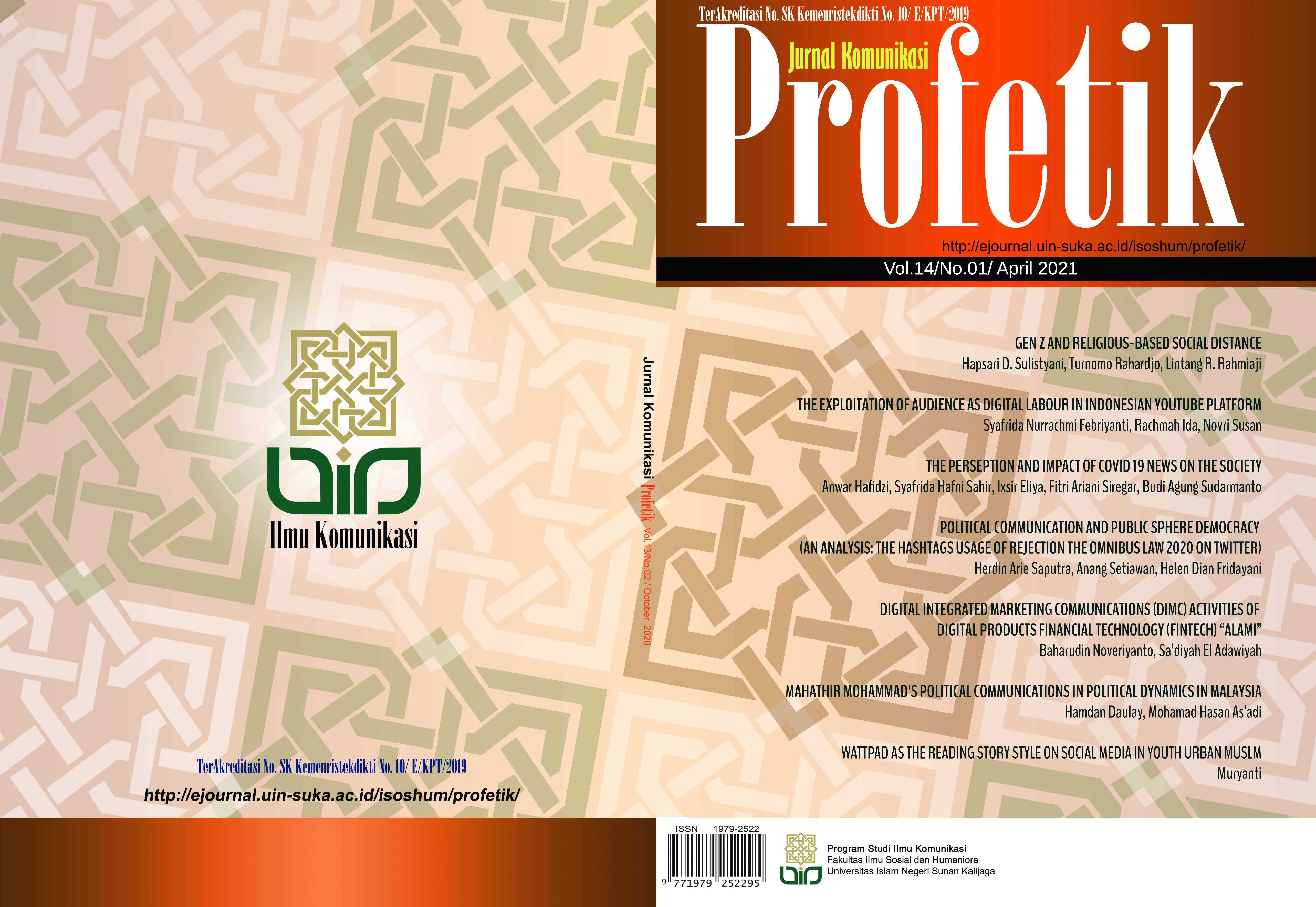Transforming Social Movements: Jogja Ora Didol’s Use of Information and Communication Technology
Main Article Content
Abstract
ICT as a communication transmission tool has long been a strong factor in shaping political mobilization in many social movements in various social and political events in the world. This research aims to describe the Jogja Ora Didol (JOD) movement in utilizing Information and Communication Technology (ICT). JOD is a movement resisting the bad impact of Yogyakarta’s development policies since 2013. Using the case study and employing secondary data, the investigation was conducted on the JOD’s social media, such as Facebook, Instagram, X (Twitter), and YouTube. We analyzed the utilization of social media in JOD’s movement from some of the features, contents, strategies, messages, and receivers. We also analyzed its impact on offline movement. As a result, we found several findings. First, JOD exploited the features of social media in developing the attractive movement’s strategy. Second, JOD creates a deliberating public space by encouraging anyone to join their movement. Third, the form of participants’ support is according to their capacity and capability. Fourth, JOD used social media to connect online and offline movement agendas. As the impact, fifth, the JOD’s engagement, agenda, and network become strong. In conclusion, we argue that these findings contribute to the current debates between ICT and social movements
Article Details
License
Please find the rights and licenses in Profetik: Jurnal Komunikasi by submitting the article/manuscript of the article, the author(s) agree with this policy. No specific document sign-off is required.
1. License
The non-commercial use of the article will be governed by the Creative Commons Attribution license as currently displayed on Creative Commons Attribution-NonCommercial 4.0 International License

2. Author(s)' Warranties
The author warrants that the article is original, written by stated author(s), has not been published before, contains no unlawful statements, does not infringe the rights of others, is subject to copyright that is vested exclusively in the author and free of any third party rights, and that any necessary written permissions to quote from other sources have been obtained by the author(s).
3. User/Public Rights
Profetik's spirit is to disseminate articles published are as free as possible. Under the Creative Commons license, Profetik permits users to copy, distribute, display, and perform the work for non-commercial purposes only. Users will also need to attribute authors and Profetik on distributing works in the journal and other media of publications. Unless otherwise stated, the authors are public entities as soon as their articles got published.
4. Rights of Authors
Authors retain all their rights to the published works, such as (but not limited to) the following rights;
Copyright and other proprietary rights relating to the article, such as patent rights, The right to use the substance of the article in own future works, including lectures and books, The right to reproduce the article for own purposes, The right to self-archive the article (please read out deposit policy), The right to enter into separate, additional contractual arrangements for the non-exclusive distribution of the article's published version (e.g., post it to an institutional repository or publish it in a book), with an acknowledgment of its initial publication in this journal (Profetik: Jurnal Komunikasi).
5. Co-Authorship
If the article was jointly prepared by more than one author, any authors submitting the manuscript warrants that he/she has been authorized by all co-authors to be agreed on this copyright and license notice (agreement) on their behalf, and agrees to inform his/her co-authors of the terms of this policy. Profetik will not be held liable for anything that may arise due to the author(s) internal dispute. Profetik will only communicate with the corresponding author.
6. Royalties
Being an open accessed journal and disseminating articles for free under the Creative Commons license term mentioned, author(s) aware that Profetik entitles the author(s) to no royalties or other fees.
7. Miscellaneous
Profetik will publish the article (or have it published) in the journal if the article’s editorial process is successfully completed. Profetik's editors may modify the article to a style of punctuation, spelling, capitalization, referencing and usage that deems appropriate. The author acknowledges that the article may be published so that it will be publicly accessible and such access will be free of charge for the readers as mentioned in point 3.
